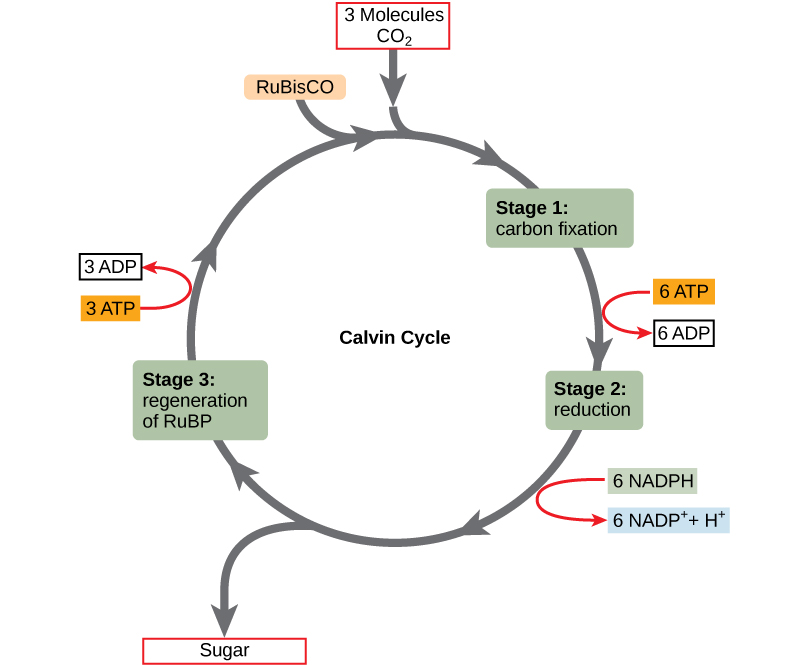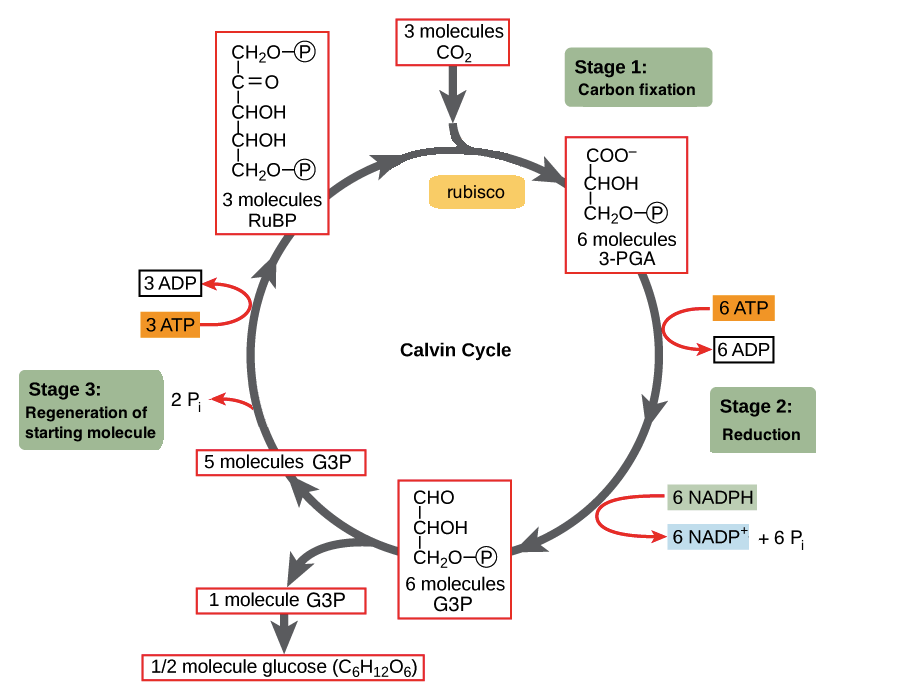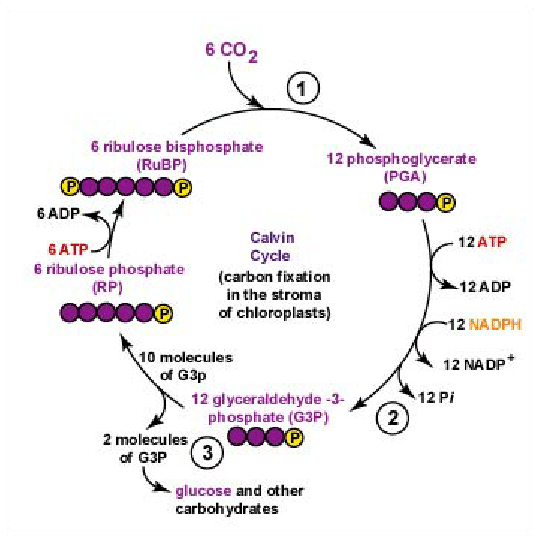
noun
- botany a series of reactions, occurring during photosynthesis, in which glucose is synthesized from carbon dioxide
- A series of chemical reactions that occurs as part of the dark reactions of photosynthesis, in which carbon is broken away from gaseous carbon dioxide and fixed as organic carbon in compounds that are ultimately used to make sugars and starch as food. The Calvin cycle starts with a five-carbon sugar molecule, to which the carbon of carbon dioxide is attached by a covalent bond. This unstable molecule breaks apart into two three-carbon molecules, which are reduced by the electron-carriers ATP and NADPH (which were created by the earlier light reactions) into three-carbon molecules that are available for the synthesis of sugar and starch. It takes three carbon dioxide molecules to produce enough carbon for the synthesis of one of these three-carbon molecules and to regenerate the five-carbon sugar so the cycle can begin again. See more at photosynthesis.
 Liberal Dictionary English Dictionary
Liberal Dictionary English Dictionary


